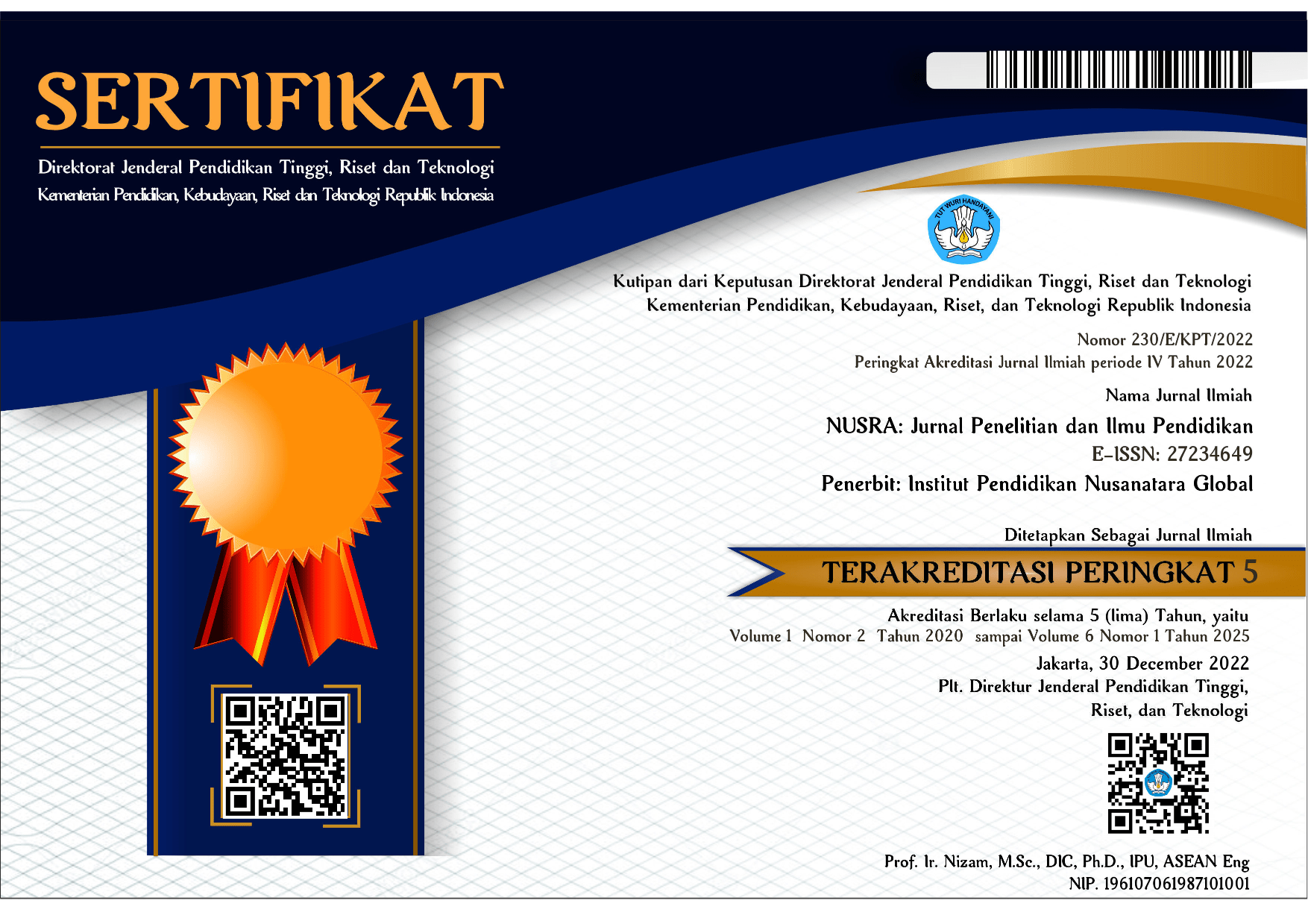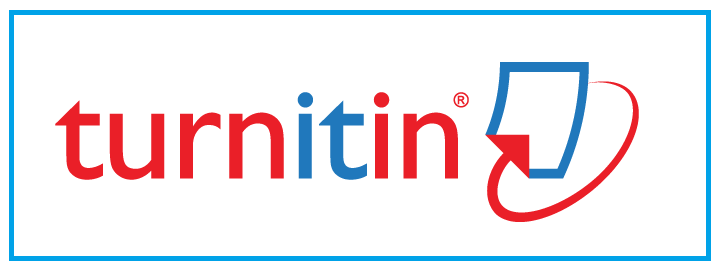Work Life Balance: Studi Fenomenologi Pada Lembaga Pendidikan
DOI:
https://doi.org/10.55681/nusra.v5i1.1865Keywords:
Work Life Balance, Teacher, SchoolAbstract
In an era of globalization that continues to develop with increasingly fierce competition, the teaching and academic profession has become a key element in ensuring the sustainability of a country's educational aspects. Teachers and academics in the field of education are individuals who have a big responsibility to lead educational institutions, both formal and non-formal, in providing education to students from generation to generation. The balance between work and personal life, often referred to as work-life balance, has become an increasingly important topic in discussions about workplace well-being. This research aims to deepen the analysis of teachers and academics in their efforts to achieve balance between demanding work lives and diverse personal lives. Through a phenomenological approach, we will explore the world of teachers and academics from their own perspective, understanding their feelings, thoughts and experiences in facing these challenges. Based on the results of this research, it shows that work life balance in the teaching profession and academics who work in the educational environment can be achieved with various supporting and inhibiting factors. Primarily, the biggest supporting factor in achieving work-life balance is determined by self-management in dividing needs in the world of work and in the personal world such as home and family. This self-management certainly cannot be measured by the same standards because of the similarities between the teaching and academic professions, between one individual and another individual who has different backgrounds, positions and responsibilities. Therefore, the work life balance expected for each individual is certainly different from one individual to another.
Downloads
References
Fadilla, S. (2022). Pengaruh Work Life Balance dan Beban Kerja Terhadap Kepuasan Kerja. Jurnal Riset Manajemen dan Pendidikan, 49-56.
Hernanda, I., Sofiah, D., & Muslikah, E. D. (2022). Kesejahteraan psikologis pada tenaga pengajar: Menguji peranan rasa syukur dan keseimbangan kehidupan-kerja. INNER: Journal of Psychological Research, 2(3), 221-231.
Isnaeni, N., Sondakh, J. J., & Gamaliel, H. (2023). The Effect of Time Pressure, Workload and Work-Life Balance in Work From Home Situation on Teachers. Journal of Academic, 4(2), 180-191.
Gunawan, G. (2019). Reliabilitas dan validitas konstruk work life balance di Indonesia. Jurnal Penelitian dan Pengukuran Psikologi: JPPP, 8(2), 88-94.
Nurhabiba, M. (2020). Social support terhadap work-life balance pada karyawan dan guru. Cognicia, 8(2), 277-295.
Patria, R. (2022). Studi Fenomenologi: Teori Humanistic dalam Pembelajaran Ilmu Pengetahuan Sosial. Progressive of Cognitive and Ability, 1(1), 1-9.
Purwanto, A. (2022). Konsep Dasar Penelitian Kualitatif: Teori Dan Contoh Praktis. Yogyakarta: Penerbit P4I.
Rahmayati, T. E. (2023). Gambaran Keseimbangan Kerja Dan Kehidupan Pada Dosen Wanita. Juripol (Jurnal Institusi Politeknik Ganesha Medan), 6(1), 1-7.
Rorong, M. J. (2020). Fenomenologi. Jakarta: Deepublish.
Sugiarto, Eko. 2016. Menyusun Proposal Penelitian Kualitatif Skripsi dan Tesis.Yogyakarta: Suaka Media the working women of Bangladesh. Journal of Human Resource and Sustainability Studies, 5(1), 75-86 Richard Welford, Work life balance in Hong Kong: Survey results(April 2008), The University of Hong Kong and CSR Asia.
Tumangkeng, S. Y. L., & Maramis, J. B. (2022). Kajian Pendekatan Fenomenologi: Literature Review. Jurnal Pembangunan Ekonomi Dan Keuangan Daerah, 23(1), 14-32.
Wahyudi, J., & Mus'id, R. (2020). Peran Guru Pendidikan Jasmani Dalam Membentuk Karakter Siswa Pada Ma. Sedesa Mertak Tombok Tahun Pelajaran 2020/2021. Nusra: Jurnal Penelitian dan Ilmu Pendidikan, 1(1). https://doi.org/10.55681/nusra.v1i1.91
Downloads
Published
How to Cite
Issue
Section
License
Copyright (c) 2024 Muhamad Irfan Fadilah, Dede Supriatna, Yayat Suharyat

This work is licensed under a Creative Commons Attribution-ShareAlike 4.0 International License.














